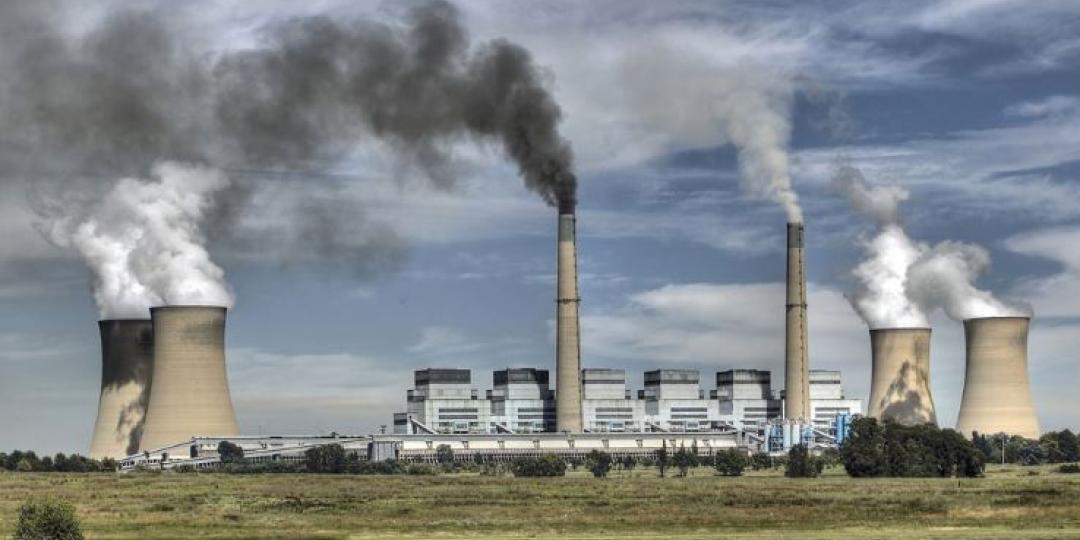On Monday, 17 May 2021, the Pretoria High Court will for the first time start to hear arguments in a court case that has become known as the “Deadly Air” case: a case about the toxic air pollution on the Mpumalanga Highveld.
The applicants, Mpumalanga community environmental justice organisation Vukani Environmental Justice Movement in Action (VEJMA) and environmental justice group groundWork are asking the court to declare that the poor ambient air quality in the Highveld is a violation of Section 24 of the Constitution, which provides that “everyone has the right to an environment not harmful to their health or wellbeing”.
The applicants claim that, by failing to improve the deadly levels of air pollution in the Highveld Priority Area (HPA), the South African government has violated the Constitutional right to a healthy environment for the people living and working in the HPA. They are asking the court to order the government to take further steps to improve the air quality in the area.
VEJMA and groundWork, represented by the Centre for Environmental Rights, launched the landmark litigation in June 2019. Read more about the history of activism and advocacy that preceded the launching of litigation.

In 2007, the then Minister of Environmental Affairs designated the HPA as a priority area under the Air Quality Act because of its poor air quality. At the time, the Department of Environmental Affairs (now Department of Forestry, Fisheries and Environment) acknowledged that it was an air pollution hotspot of extremely poor air quality and that “there was little doubt that people living and working in these areas do not enjoy air quality that is not harmful to their health and wellbeing”. Nearly 5 years later, in 2012, the Minister published an air quality management plan (“the HPA AQMP”) to clean up the Highveld Priority Area’s air pollution. Since then, little has changed, despite the HPA AQMP.
Mpumalanga accounts for about 83% of South Africa’s coal production, and Eskom owns the 12 (of its 15) coal-fired power plants located in the area in and around the HPA. The area has been plagued with deadly air quality for decades, with the high concentration of coal-fired power plants in the province, Sasol’s coal-to-liquids plant located in Secunda, and the NatRef refinery in Sasolburg contributing large amounts of pollution. In an independent study attached to the court papers, Dr Andy Gray, an expert in air and health risk modelling, found that these 14 facilities were responsible for the lion’s share of air pollution in 2016.
Human exposure to toxic chemical compounds emitted by the coal plants, such as sulphur dioxide, heavy metals like mercury, and fine particulate matter, results in chronic respiratory illnesses such as asthma, bronchitis, and lung cancer, and contributes to strokes, heart attacks, birth defects, and premature death. Dr Gray estimates in court papers that emissions from the 14 facilities mentioned above caused between 305 and 650 early deaths in and around the HPA in 2016. As many as 2239 premature deaths annually can be attributed to air pollution from power plants in South Africa.
The respondents in the case are the President, the Minister of Forestry, Fisheries and the Environment, the National Air Quality Officer, and the MECs for agriculture and rural development in Gauteng and Mpumalanga. In her answering affidavit on behalf of the government, Environment Minister Barbara Creecy denied that government is failing in its obligations to address the air pollution in the Mpumalanga Highveld.
United Nations Special Rapporteur on Human Rights and the Environment, Prof David Boyd, has been admitted by the court as an amicus curiae (friend of the court) in the case. Special Rapporteurs are independent human rights experts tasked to report and advise on human rights issues. Prof Boyd is represented by public interest law organisation Lawyers for Human Rights.
Although the court hearing will be virtual, partner organisations and community members will protest outside the Pretoria High Court on Monday morning to show solidarity with the applicants.
Promise Mabilo from Vukani Environmental Justice Movement in Action (VEJMA) says: “People are dying slowly and suffering every day as a result of the air pollution around us. My hope is that the Deadly Air court case will force government to take the serious action needed to reduce the harmful levels of air pollution and save the lives of people living in air quality priority areas in South Africa.”
“The high levels of toxic air in the Mpumalanga Highveld are a scourge that impact people’s health on a daily basis and meaningful action is needed at local and national levels of government. The landmark case could change not only the lives of Mpumalanga Highveld residents but the entire South African landscape in addressing the impacts of air pollution,” says Thomas Mnguni, campaigner at groundWork.
Contact Lerato Balendran, Centre for Environmental Rights, Tel 079 071-7442, lbalendran@cer.org.za















